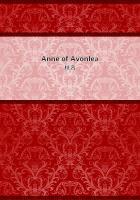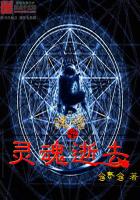The same reasoning applies to civil liability.A carpenter need not go to work upon another man's house at all, but if he accepts the other's confidence and intermeddles, he cannot stop at will and leave the roof open to the weather.So in the case of the farrier, when he had taken charge of the horse, he could not stop at the critical moment and leave the consequences to fortune.So, still more clearly, when the ferryman undertook to carry a horse across the Humber, although the water drowned the horse, his remote acts of overloading his boat and pushing it into the stream in that condition occasioned the loss, and he was answerable for it.
In the foregoing cases the duty was independent of contract, or at least was so regarded by the judges who decided them, and stood on the general rules applied to human conduct even by the criminal law.The immediate occasion of the damage complained of may have been a mere omission letting in the operation of natural forces.But if you connect it, as it was connected in fact, with the previous dealings, you have a course of action and conduct which, taken as a whole, has caused or occasioned the harm.
The objection may be urged, to be sure, that there is a considerable step from holding a man liable for the consequences of his acts which he might have prevented, to ****** him answerable for not having interfered with the course of nature when he neither set it in motion nor opened the door for it to do harm, and that there is just that difference between ****** a hole in a roof and leaving it open, or cutting the cord and letting it bleed, on the one side, and the case of a farrier who receives a sick horse and omits proper precautions, on the other.
There seem to be two answers to this.First, it is not clear that such a distinction was adverted to by the court which decided the case which I have mentioned.It was alleged that the defendant performed his cure so negligently that the horse died.It might not have occurred to the judges that the defendant's conduct possibly went no further than the omission of a series of beneficial measures.It was probably assumed to have consisted of a combination of acts and neglects, which taken as a whole amounted to an improper dealing with the thing.
In the next place, it is doubtful whether the distinction is a sound one on practical grounds.It may well be that, so long as one allows a trust to be reposed in him, he is bound to use such precautions as are known to him, although he has made no contract, and is at liberty to renounce the trust in any reasonable manner.This view derives some support from the issue on which the parties went to trial, which was that the defendant performed the cure as well as he knew how, without this, that the horse died for default of his care (cure?)./l /But it cannot be denied that the allegation of an undertaking conveyed the idea of a promise, as well as that of an entering upon the business in hand.Indeed, the latter element is sufficiently conveyed, perhaps, without it.It may be asked, therefore, whether the promise did not count for something in raising a duty to act.So far as this involves the consequence that the action was in fact for the breach of a contract, the answer has been given already, and is sustained by too great a weight of authority to be doubted. To bind the defendant by a contract, an instrument under seal was essential.As has been shown, already, even the ancient sphere of debt had been limited by this requirement, and in the time of Edward III.a deed was necessary even to bind a surety.It was so a fortiori to introduce a liability upon promises not enforced by the ancient law.Nevertheless, the suggestion was made at an early date, that an action on the case for damage by negligence, that is, by an omission of proper precautions, alleging an undertaking by way of inducement, was in fact an action of contract.
Five years after the action for negligence in curing a horse, which has been stated, an action was brought in form against a surgeon, alleging that he undertook to cure the plaintiff's hand, and that by his negligence the hand was maimed.There was, however, this difference, that it was set forth that the plaintiff's hand had been wounded by one T.B.And hence it appeared that, however much the bad treatment may have aggravated matters, the maiming was properly attributable to T.B., and that the plaintiff had an action against him.This may have led the defendant to adopt the course he did, because he felt uncertain whether any action of tort would lie.He took issue on the undertaking, assuming that to be essential to the plaintiff's case, and then objected that the writ did not show the place of the undertaking, and hence was bad, because it did not show whence the inquest should be summoned to speak to that point.The writ was adjudged bad on that ground, which seems as if the court sanctioned the defendant's view.Indeed, one of the judges called it an action of covenant, and said that "of necessity it was maintainable without specialty, because for so small a matter a man cannot always have a clerk at hand to write a deed" (pur faire especially).At the same time the earlier cases which
have been mentioned were cited and relied on, and it is evident that the court was not prepared to go beyond them, or to hold that the action could be maintained on its merits apart from the technical objection.In another connection it seems to have considered the action from the point of view of trespass. Whatever questions this case may suggest, the class of actions which alleged an undertaking on the part of the defendant continued to be dealt with as actions of tort for a long time after Edward III.The liability was limited to damage to person or property arising after the defendant had entered upon the employment.And it was mainly through reasoning drawn from the law of tort that it was afterwards extended, as will be seen.















